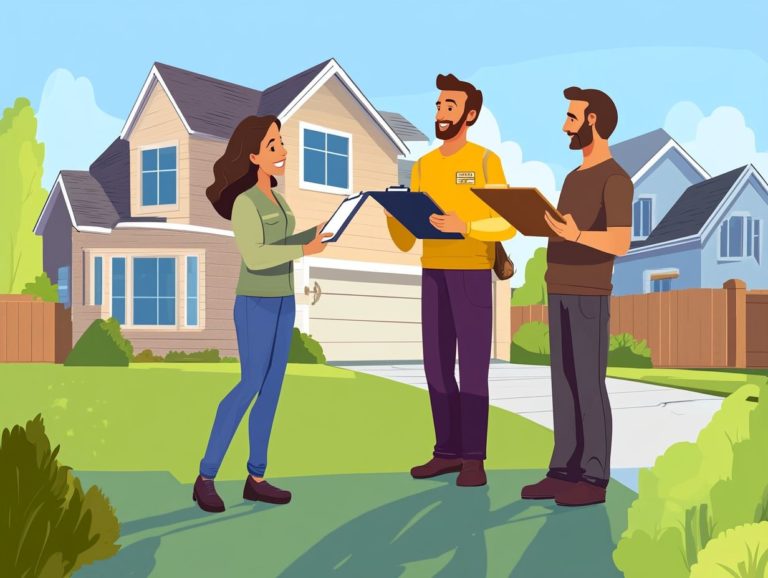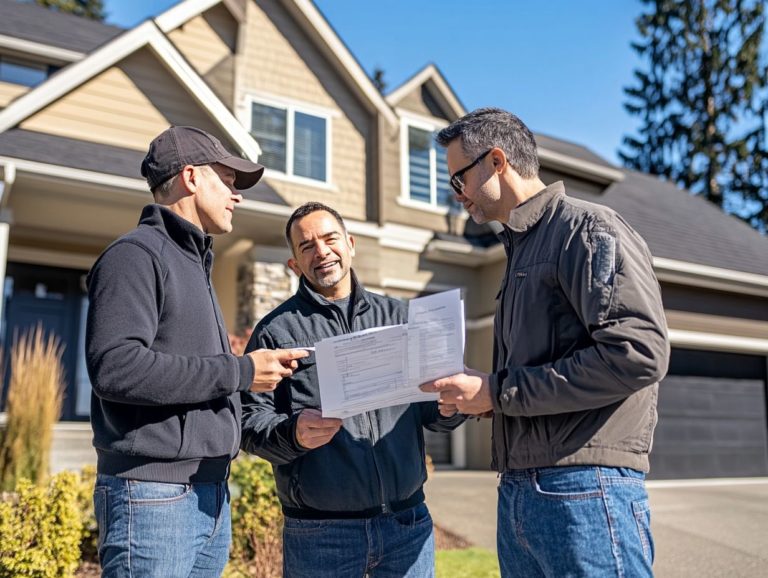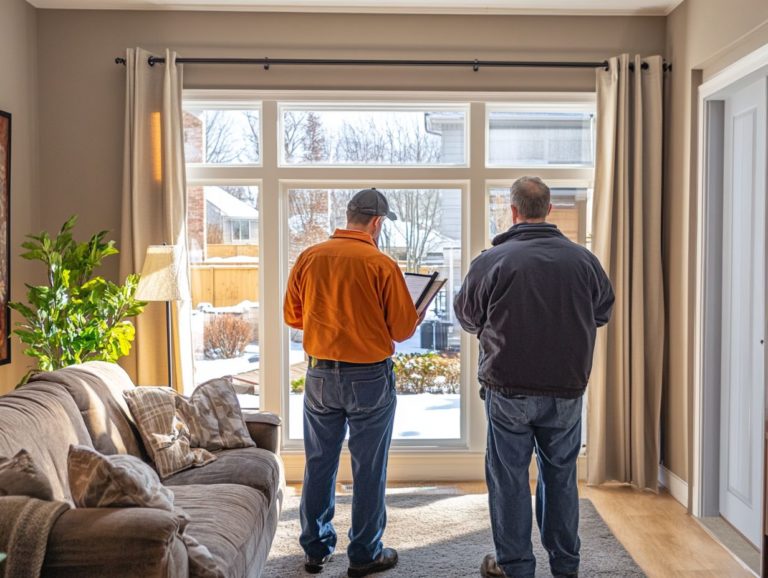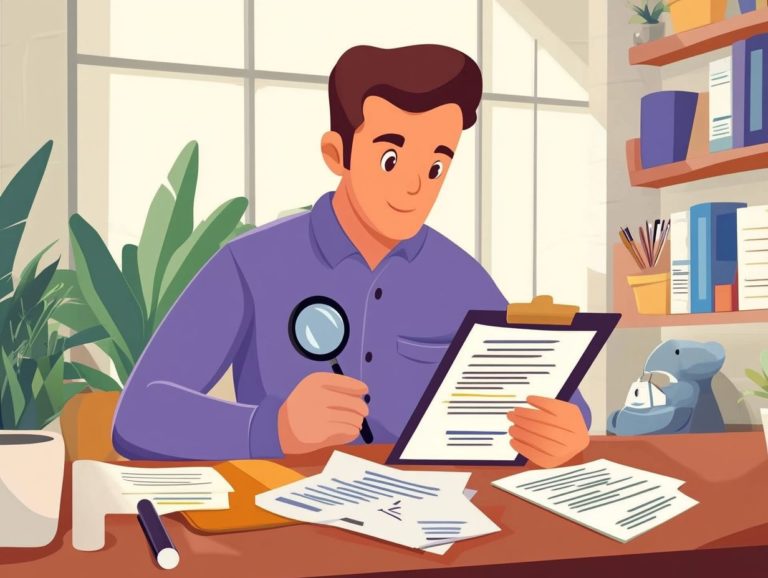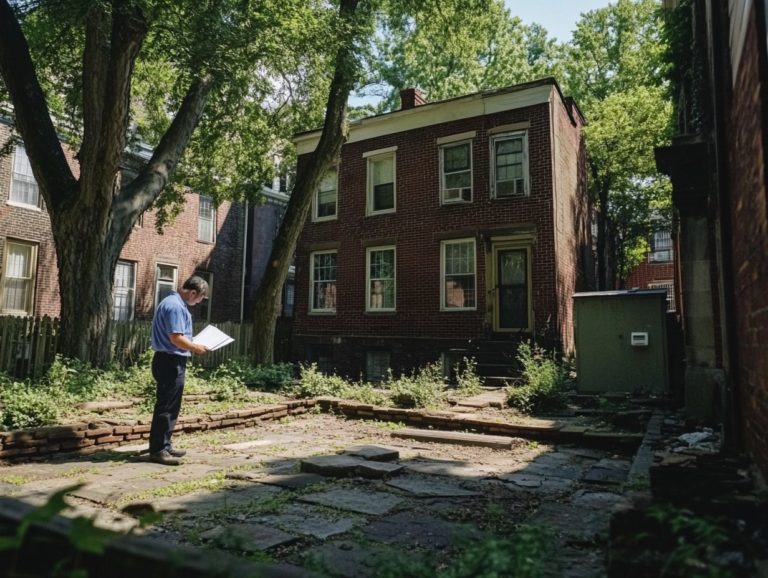How to Choose a Home Inspector for Older Homes
Are you ready to buy an older home? Let’s make sure you find the right inspector to help safeguard your future!
Buying an older home can truly be a dream come true, yet it also brings its own unique challenges.
Home inspections are essential for grasping the distinct needs and potential issues these classic properties may present.
This guide is designed to assist you in selecting the perfect home inspector for your older home.
From the qualifications to inquire about during the interview process to what you can expect on the day of the inspection, you ll find everything you need here.
Discover how to make well-informed decisions that will not only safeguard your investment but also help preserve the charm of your new abode.
Contents
- Key Takeaways:
- The Importance of Home Inspections for Older Homes
- Qualifications to Look for in a Home Inspector
- Questions to Ask a Potential Home Inspector
- What to Ask During the Interview Process
- Researching and Comparing Home Inspectors
- Factors to Consider in the Selection Process
- What to Expect During the Inspection
- The Inspection Process and Common Findings in Older Homes
- Interpreting the Inspection Report
- Working with Your Home Inspector
- Frequently Asked Questions
- What to look for in an inspector for older homes?
- Is it necessary to hire an inspector specifically for older homes?
- What qualifications should a home inspector for older homes have?
- How can I find a reliable home inspector for an older home?
- What questions should I ask a potential home inspector for an older home?
- How much should I expect to pay for a home inspector for an older home?
Key Takeaways:
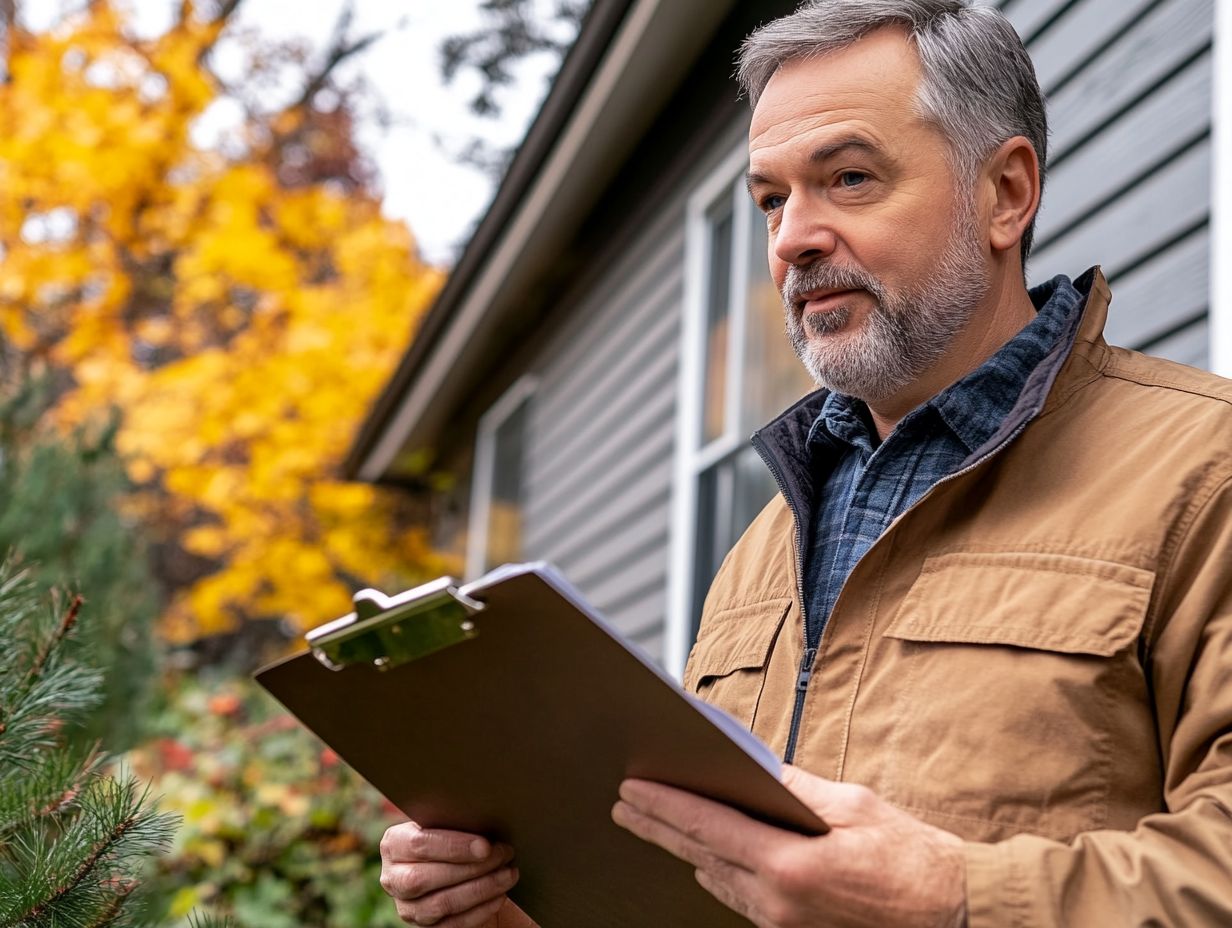
Choose a home inspector with experience and relevant certificates for older homes by following guidelines on how to choose a home inspector to ensure thorough and accurate inspections.
Ask potential home inspectors about their process and how to choose a home inspector with experience in what areas they specifically focus on when inspecting older homes.
Research and compare home inspectors based on factors like qualifications, reviews, and cost to find the best fit for your needs.
The Importance of Home Inspections for Older Homes
Home inspections are essential for older homes, as they often conceal potential issues that might not be readily apparent, such as outdated materials, structural concerns, and pest infestations. Knowing how to select a home inspector for your needs can help ensure a thorough evaluation.
By hiring a qualified home inspector, you can obtain a comprehensive evaluation that delivers an impartial report vital for making an informed decision in the home buying process.
This detailed examination of the property s condition not only helps you make a wise investment but also protects your homeowners insurance coverage.
Why Older Homes Require Special Attention
Older homes often demand your careful attention, given their susceptibility to various structural issues and the potential for outdated electrical systems or plumbing challenges.
You should also be particularly mindful of aging heating, ventilation, and air conditioning (HVAC) systems, which may not perform as efficiently as their newer counterparts.
This inefficiency can lead to higher energy costs and less effective temperature control in your living space.
The structural integrity of these homes can be further compromised by hidden problems like wood rot or foundation shifts. These issues may not be immediately apparent.
Outdated systems can present safety hazards, such as the risk of electrical fires or plumbing leaks, both of which could lead to significant damage.
That s why conducting a comprehensive home inspection is essential it gives you the power to identify and address these concerns proactively, ensuring your investment is sound and secure.
Qualifications to Look for in a Home Inspector
When you’re hiring a home inspector, it s crucial to weigh qualifications like certificates, experience, and compliance with licensing requirements.
These elements significantly impact the quality of the inspection you’ll receive, ensuring that your investment is protected and any potential issues are identified.
Certifications and Experience
Certifications from reputable organizations like the American Society of Home Inspectors or the International Association of Certified Home Inspectors are essential markers of an inspector’s experience and reliability.
These credentials not only validate the training and knowledge of the inspector but also give you the confidence that your property is being evaluated thoroughly.
Additionally, relevant experience is crucial for shaping an inspector’s ability to detect potential problems that may not be immediately obvious.
Well-regarded organizations establish industry standards, ensuring that inspectors adhere to best practices, which fosters trust and facilitates effective communication.
This solid foundation ultimately empowers inspectors to deliver impartial reports, helping you make informed decisions about your property.
Questions to Ask a Potential Home Inspector
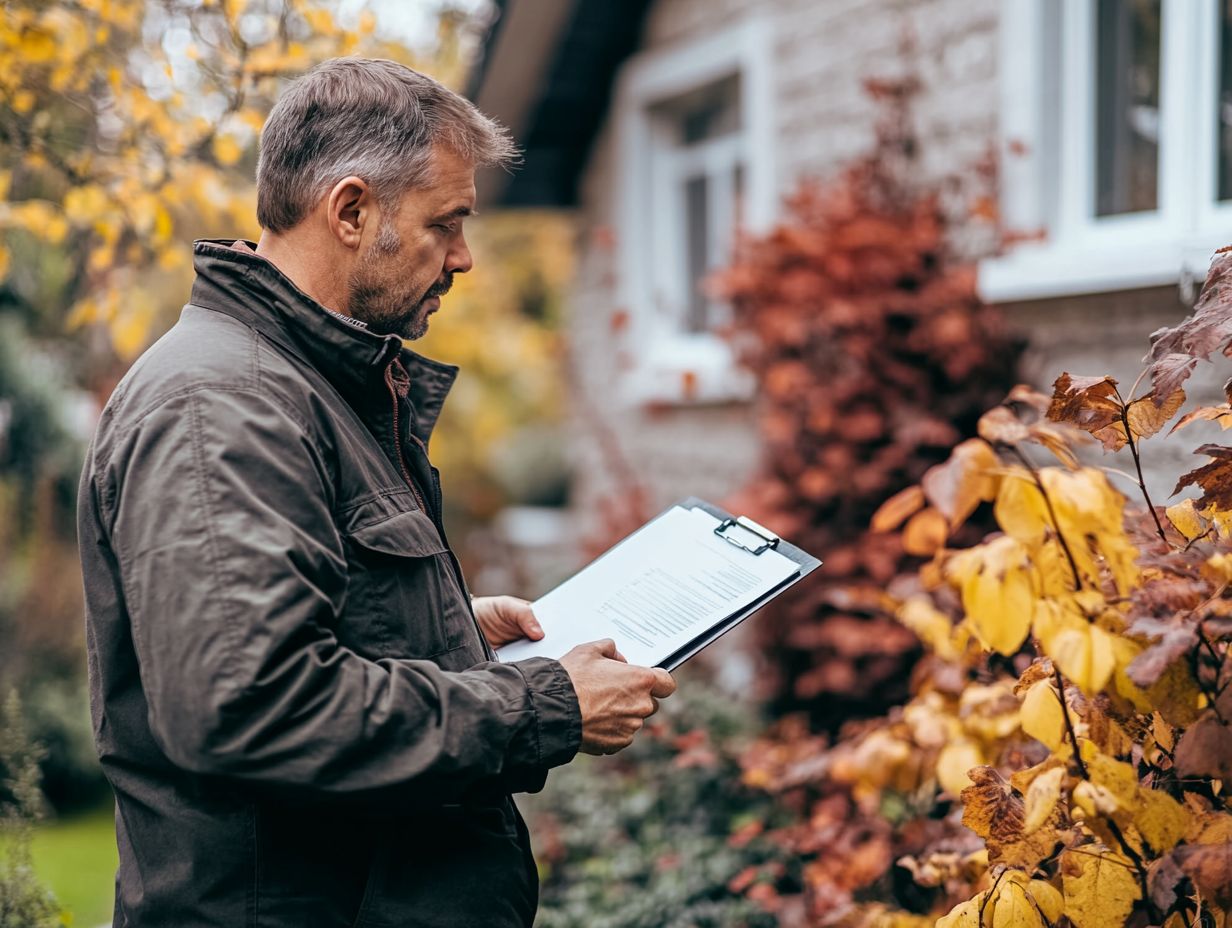
When navigating the interview process with a potential home inspector, it s essential to pose pointed questions that reveal their communication skills, experience, and the thoroughness of their inspection reports.
Ask about any extra services they might offer to ensure you receive a complete assessment.
In conclusion, selecting the right home inspector is critical to ensuring your new home is safe and sound. Research thoroughly, ask the right questions, and don’t hesitate to make your choice based on the inspector’s qualifications and experience.
What to Ask During the Interview Process
When interviewing a home inspector, it’s essential to ask key questions that shed light on their qualifications and approach. Inquire about their experience how many inspections have they conducted? These details reveal their true expertise and reliability!
You should also delve into what their inspection report entails. What specific elements will be covered? Does it include photographs, detailed descriptions, or even recommendations for repairs? These factors can significantly influence your understanding of the property.
Equally important is grasping their preferred communication style. Will they offer a verbal overview immediately after the inspection, or will they follow up with a comprehensive written report? Having this clarity gives you the power to navigate the complexities of purchasing a home with confidence.
Researching and Comparing Home Inspectors
When researching and comparing home inspectors, consider a range of factors. Pay attention to online reviews, gather recommendations from trusted friends, and ensure that the inspector complies with state agency regulations.
This multifaceted approach helps you make an informed decision, ensuring that you select a qualified professional who meets your specific needs.
Factors to Consider in the Selection Process
When selecting a home inspector, carefully evaluate factors such as their experience, online reviews, and the range of additional services they offer.
A seasoned inspector can provide invaluable insights gained from years of checking various properties, which is essential for identifying hidden issues that others might overlook.
Checking their online ratings and customer feedback gives you a clear picture of their reliability and professionalism.
Also, check if the inspector provides extra services like radon testing, which checks for harmful gas that can accumulate in homes, or pest inspections. These can streamline the overall evaluation process and help uncover potential risks.
Taking the time to assess these elements enhances your inspection experience and significantly contributes to making informed decisions about your property.
What to Expect During the Inspection
During the home inspection, you can anticipate a careful check that encompasses a visual assessment of the property’s structural integrity, scrutiny of electrical systems, and an evaluation of plumbing issues.
Expect the use of advanced technologies, such as thermal imaging, to reveal any hidden problems lurking beneath the surface.
The Inspection Process and Common Findings in Older Homes
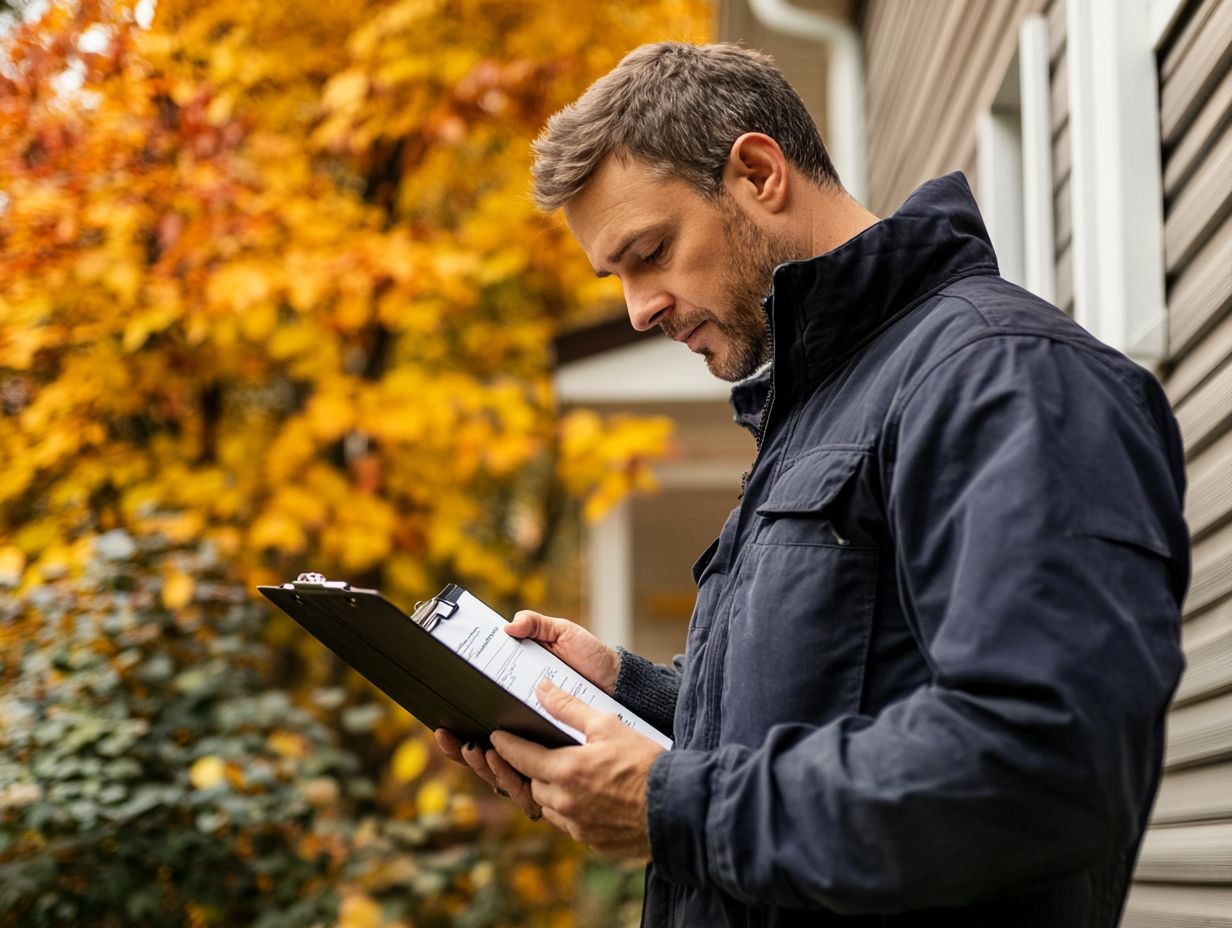
The inspection process for older homes typically uncovers common issues related to structural integrity, outdated plumbing, electrical systems, and HVAC components that demand your careful consideration. To ensure a thorough evaluation, it’s wise to learn how to choose the best home inspector for your needs.
These findings can greatly influence your decision-making process and overall investment. For example, you might encounter foundation cracks that signal serious structural concerns, potentially escalating maintenance costs and posing safety risks.
Outdated plumbing systems could reveal corroded pipes or even lead materials, which directly impact water quality and usage.
In terms of electrical systems, they often fall short of modern codes, creating safety hazards and increasing the risk of fire. As for old HVAC components, they tend to be inefficient, leading to skyrocketing energy bills.
Navigating these challenges can come with a hefty price tag, compelling you to weigh the allure of charm and character against essential financial and safety considerations.
Interpreting the Inspection Report
Interpreting the inspection report is essential for you to grasp the findings of the home inspection. This understanding will guide you in determining your next steps and the costs associated with them.
Make sure to review this carefully before making any decisions!
Understanding the Results and Next Steps
Understanding the results of the inspection report is crucial for determining your next steps. This includes potential negotiations with sellers based on the issues identified.
To navigate this report effectively, pinpoint significant findings such as structural damage, plumbing concerns, or electrical flaws. Each of these can impact your bargaining power.
By prioritizing these key issues, you can approach negotiations with a strategic mindset. Focus on serious concerns while seeking reasonable concessions.
For example, you might propose repair requests or suggest adjustments to the sale price based on the severity of any defects. This approach can lead to a more favorable outcome.
Being prepared with quotes for repairs can strengthen your position. It reinforces the need for a fair resolution that satisfies everyone involved in the transaction.
Working with Your Home Inspector
Building a good relationship with your home inspector is crucial. It ensures effective communication and addresses any concerns that may surface during the home inspection process.
Establishing rapport fosters trust and improves your experience. This allows for a smoother and more informed transaction.
Building a Good Relationship and Addressing Concerns
To cultivate a strong relationship with your home inspector, make effective communication a priority. Stay open to addressing any concerns that arise during the inspection.
This creates a teamwork atmosphere where both of you can share insights without reservation. Trust is key! It gives the inspector the power to provide candid feedback without the fear of conflict.
Don’t hesitate to ask questions about their processes and findings to clear any confusion. This shows your genuine interest in understanding the property’s condition and fosters a deeper connection.
Expressing gratitude for their expertise can enhance mutual respect. It promotes open dialogue, which is invaluable when navigating potential discoveries and recommendations together.
Frequently Asked Questions

What to look for in an inspector for older homes?
When choosing a home inspector for an older home, look for someone with experience in inspecting homes of similar age and construction. It’s important to find an inspector who knows how to choose an inspector for your home and understands typical problems to watch out for in older properties.
Is it necessary to hire an inspector specifically for older homes?
While it’s not required, it’s highly recommended to hire a home inspector with experience in older homes. For guidance on selecting the best professional, check out this resource on how to choose the right inspector for your home. They possess specialized knowledge in identifying potential issues and offering repair recommendations.
What qualifications should a home inspector for older homes have?
A home inspector should have a valid license or certification from a recognized organization, such as the International Association of Certified Home Inspectors (InterNACHI). For the best results, it’s important to know how to choose the right home inspector for your property, especially if you are inspecting particularly older homes.
How can I find a reliable home inspector for an older home?
Word of mouth is often a great way to find a reliable home inspector. Ask friends or family members who have recently purchased an older home for recommendations, or refer to this guide on how to choose a home inspector in your area.
You can also research online and read reviews from previous clients.
What questions should I ask a potential home inspector for an older home?
Some important questions to ask include their experience with older homes, qualifications, availability, and the type of report they provide after the inspection. Additionally, knowing how to choose the right home inspector for you may involve asking for references from previous clients.
How much should I expect to pay for a home inspector for an older home?
The cost of a home inspector for an older home can vary based on factors like location, size of the home, and the inspector’s experience. On average, expect to pay between $300 and $500 for a thorough inspection of an older home.

